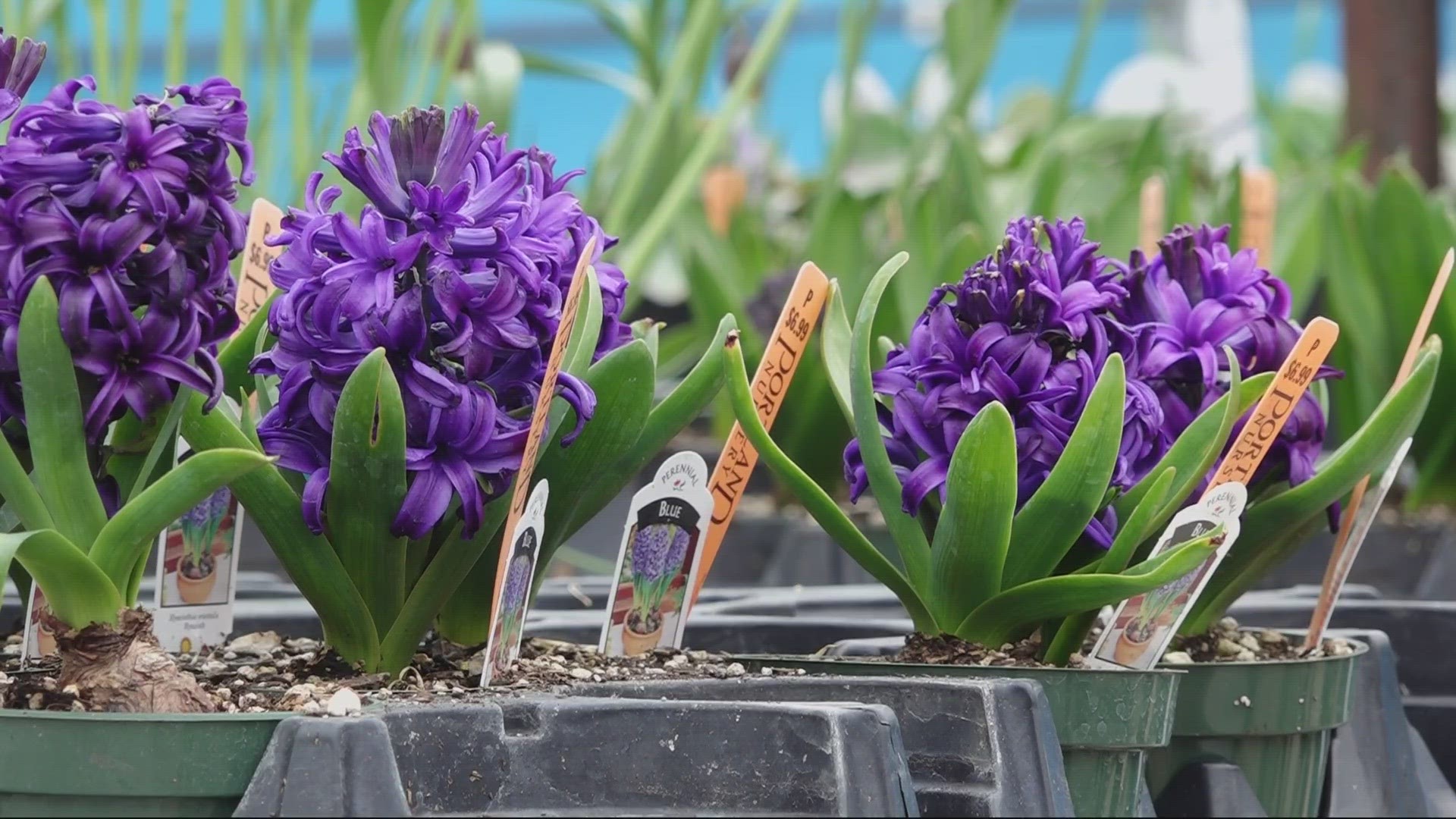PORTLAND, Ore. — Spring is right around the corner. For many, the warmer temperatures mean one thing - gardening.
“It’s so fun to be here when everyone has spring fever and is excited,” Katie, a manager at Portland Nursery off Stark in East Portland.
Katie tells KGW hundreds of Portlanders found themselves preparing for their spring gardening on Saturday during the 68 degrees Fahrenheit day- including some kiddos.
“We have been moving around for a long time,” said one Portland family shopping for plants. “We were in Melbourne, Shanghai, New York and we decided to live in Portland. We came here primarily for like the nature and to grow stuff.”
But there are a few things to keep in mind when you’re picking your next outdoor plant.
“It’s the perfect time to get planting. This time of year, it’s ‘going time’ for almost everything,'” said Katie. “But be aware of frost. We still are within the average frost date for the Portland area. If you’re outside of the Portland area, it goes a little bit longer.”
According to the Oregon Climate Service at OSU, Portland’s average last frost date is around the last week of march. But if you live in Beaverton, Forest Grove, Hillsboro, or Newberg your average frost date extends through the month of April.


“So keep that in mind if you’re going with the tender plants,” said Katie. “Annuals, some of the more warmer season veggies and herbs.”
Katie says now is the time to start planting seeds into the ground to get them established before things warm up. If you’re looking at what plants and veggies could survive a light frost -- they’re plants like shrubs, perennial flowers, lettuce and broccoli. But it’s too early to plant basil, tomatoes, outdoor begonias and sunflowers.
Katie also suggests not to plant when the soil is soggy and muddy. She says that can compact the soil.
You can also bring potted plants against a wall outdoors or cover them with another pot on cold nights. Or you can also search for other DIY ideas online - like cutting a clean milk jug in half and placing it on your plant - so it's protected from frost.

